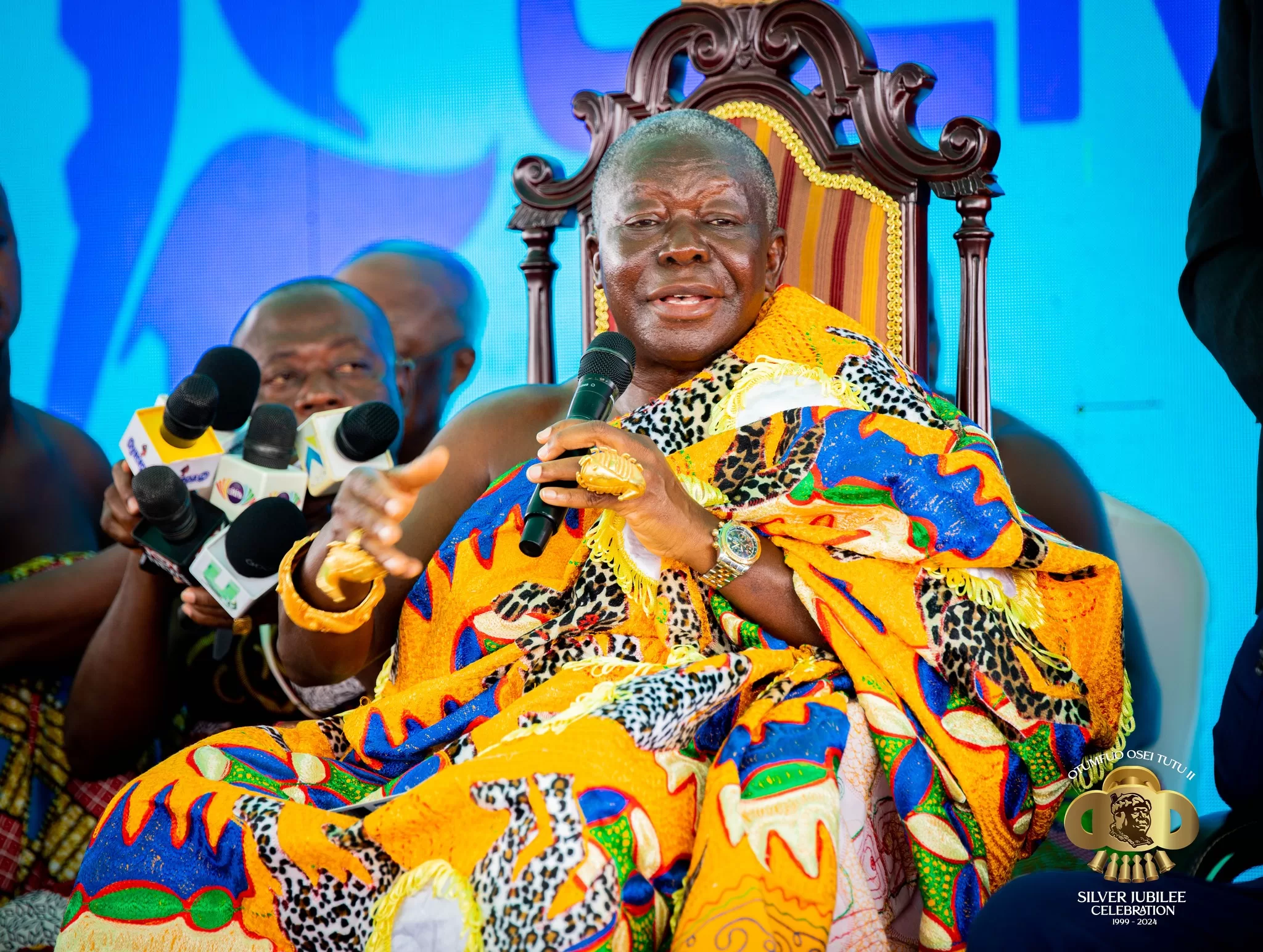The Asantehene, Otumfuo Osei Tutu II, has called for a bold shift in how farmlands are allocated in Ghana, proposing equity-based arrangements instead of outright cash sales. Speaking during a visit by the Minister for Food and Agriculture, Hon. Eric Opoku, to the Manhyia Palace on June 13, 2025, the revered monarch emphasized the need to remove financial barriers to land access—especially for young people interested in farming.
Otumfuo suggested that traditional authorities offer idle lands to farmers in exchange for ownership stakes in the agricultural yields, a method that reflects ancient practices where chiefs benefited from farm produce rather than monetary payments.
“Traditional authorities must not demand unreasonable sums for land. Instead, let them have equity in the food production chain. They should receive a share of what the land produces,” he said.
The Asantehene believes this model would increase land accessibility and attract more youth into agriculture, thereby contributing to Ghana’s goal of achieving food self-sufficiency. He encouraged traditional leaders to identify and release unused lands for farming, pointing out that many young Ghanaians are eager to farm but lack access to land.
Otumfuo also criticized the nation’s overreliance on food imports, lamenting that Ghana continues to import tomatoes and onions from neighboring countries despite having fertile lands. He called for stronger policies and support systems, including reliable irrigation facilities, to sustain local farming efforts.
“It’s a national concern that we spend over $2 billion annually importing food while producing only 5% of our chicken needs,” he noted. “With effective policies, this money could be used for more pressing developmental needs.”
Referencing Ghana’s historic “Operation Feed Yourself” initiative launched in 1972, Otumfuo urged the revival of backyard gardening in schools and homes. “Everyone used to have a garden. We must bring that culture back,” he said.
Looking ahead, Otumfuo expects progress within a short period. “By the end of this year, we should see positive change. By next year, food imports should be halved. And by the end of this government’s term, we must be self-reliant,” he stated.
Minister Eric Opoku, in response, assured the King that the government is taking serious steps to address food insecurity. He outlined key components of the Feed Ghana initiative, which encourages all Ghanaians—from schools to security agencies—to engage in food cultivation.
“Primary, JHS, SHS, and tertiary schools are all encouraged to practice gardening, which will support the school feeding programme. Outstanding institutions will be recognized on Farmers’ Day,” he said.
He added that institutions like the Ghana Armed Forces, Prisons Service, and the National Service Authority are all participating in the initiative.
As part of efforts to boost domestic poultry production, the Minister also introduced the upcoming “Nkoko Nketenkete” programme, which will be launched in the Ashanti Region. He revealed that a local entrepreneur, known as A2, is setting up a poultry feed plant to support the initiative with affordable feed, and the Ministry is currently engaging maize farmers to supply the plant.
Otumfuo concluded by urging the government to also provide financial support to small-scale miners, ensuring inclusive economic growth.

